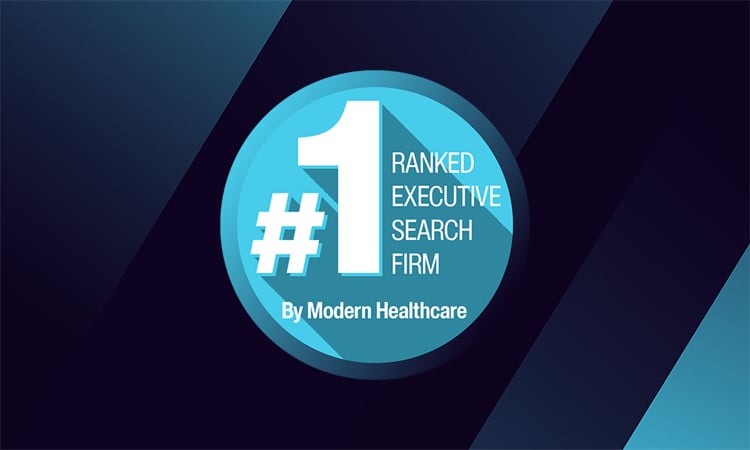
Shaping the Leaders of Tomorrow: Trends for 2025
In an era where change is the only constant, executives, CEOs, and CFOs must stay ahead of the curve if they want to remain competitive. The landscape of leadership is evolving faster than ever before, demanding adaptability and foresight. With 2025 on the horizon, understanding the emerging leadership trends is important, not just for survival, but for thriving in the business world. This guide will explore the leadership trends set to shape the future, offering insights and strategies to prepare for the challenges and opportunities that lie ahead.
The future of leadership is not just about guiding organizations through technological advancements or economic shifts. It involves redefining leadership roles, fostering a culture of continuous learning, promoting inclusivity, and prioritizing employee wellness. These trends are not mere buzzwords; they are essential strategies that will define successful leadership in the coming years. From harnessing the power of AI to cultivating an inclusive workforce, this post will provide a helpful guide to the trends that will shape leadership in 2025 and beyond.
Future Leadership Trends and Their Impact
Leadership is not a static concept; it evolves with the times. As we move towards 2025, several key trends are emerging that will redefine the way leaders operate. From technological advancements to cultural shifts, these trends are set to have a profound impact on leadership across industries. Understanding these trends is essential for executives, CEOs, and CFOs who want to stay relevant and drive their organizations forward.
One of the most significant trends shaping the future of leadership is the rapid advancement of technology, particularly artificial intelligence. Leaders must be prepared to harness the power of AI to drive innovation and efficiency. Additionally, the importance of continuous learning cannot be overstated. In a rapidly changing world, leaders must foster a culture of learning to stay ahead of the competition and adapt to new challenges.
Another crucial trend is the growing emphasis on diversity and inclusion. Inclusive leadership not only promotes equality but also drives innovation and improves decision-making. Finally, prioritizing employee wellness is increasingly recognized as a key component of effective leadership. Leaders who prioritize the well-being of their employees create a positive work environment and foster loyalty and productivity.
What are the 5 Qualities of a Good Leader?
Understanding the qualities that define a good leader is fundamental to navigating these emerging trends. Here are five essential qualities:
- Visionary Thinking: Good leaders have a clear vision and the ability to communicate it effectively. They inspire and motivate their teams to achieve common goals.
- Adaptability: In an ever-changing world, adaptability is crucial. Effective leaders are flexible and open to new ideas, adjusting their strategies as necessary.
- Empathy: Understanding and addressing the needs and concerns of employees fosters a supportive and inclusive environment. Empathetic leaders build strong, cohesive teams.
- Integrity: Trust is the foundation of leadership. Leaders who demonstrate honesty and ethical behavior earn the respect and loyalty of their teams.
- Decisiveness: Good leaders are able to make informed decisions swiftly and confidently. They analyze situations thoroughly and take action when needed.
Prepare Leaders for the Age of AI and Technological Advancement
The future of leadership is intertwined with technology, particularly artificial intelligence. As AI continues to revolutionize industries, leaders must be prepared to adapt and harness its potential. This requires not only understanding the technology itself but also being able to integrate it into existing business models and processes.
To prepare for the AI revolution, leaders must develop a deep understanding of how AI can be used to drive innovation and efficiency. This involves staying informed about the latest advancements, such as machine learning algorithms that enhance predictive analytics, AI-driven chatbots that improve customer service, and automation tools that streamline operational processes. Leaders should explore how these technologies can be applied to their specific industry and invest in training and development to ensure their teams are equipped with the skills needed to work with AI.
Additionally, leaders must be willing to experiment and take risks when it comes to implementing new technologies like blockchain for secure transactions or IoT devices for enhanced data collection. This requires a mindset shift, where failure is seen as an opportunity to learn and grow. By fostering a culture of innovation and experimentation, leaders can ensure their organizations stay ahead of the curve and continue to thrive in an increasingly digital world.

Develop Leadership Programs that Advocate for Lifelong Learning
Continuous learning is a critical component of effective leadership. In a rapidly changing world, leaders must be able to adapt and evolve to stay relevant. This requires a commitment to lifelong learning and a willingness to challenge existing assumptions and beliefs.
To embed a culture of continuous learning within leadership development programs, organizations must prioritize learning and development at all levels. This involves providing opportunities for leaders to expand their knowledge and skills, whether through formal training programs, workshops, or on-the-job learning experiences. It also involves fostering a learning mindset, where curiosity and exploration are encouraged and rewarded.
Additionally, organizations should create a supportive environment where leaders feel empowered to take risks and learn from their mistakes. This requires a shift in organizational culture, where failure is not seen as a negative outcome, but rather as an opportunity for growth and development. By prioritizing continuous learning, leaders can ensure they are equipped to navigate the challenges and opportunities of the future.
Encourage Inclusive Leadership that Values Diversity
Inclusive leadership is no longer a nice-to-have; it is a necessity in today's diverse and interconnected world. Leaders who prioritize diversity and inclusion not only promote equality but also drive innovation and improve decision-making. By valuing diverse perspectives and experiences, leaders can create a more dynamic and effective organization.
To promote inclusive leadership, organizations must prioritize diversity and inclusion at all levels. This involves creating a culture where all employees feel valued and respected, regardless of their background or identity. It also involves actively seeking out diverse perspectives and ensuring they are represented in decision-making processes.
Additionally, leaders should be trained in inclusive leadership practices, such as active listening, empathy, and cultural competency. By developing these skills, leaders can create a more inclusive and supportive work environment, where all employees feel empowered to contribute and succeed.
Elevate Employee Wellness as a Primary Focus
Employee wellness is increasingly recognized as a key component of effective leadership. Leaders who prioritize the well-being of their employees create a positive work environment and foster loyalty and productivity. By championing employee wellness, leaders can ensure their organizations thrive in the long term.
To prioritize employee wellness, leaders must create a supportive and inclusive work environment where employees feel valued and respected. This involves providing resources and support for physical, mental, and emotional well-being, whether through wellness programs, flexible work arrangements, or access to mental health services.
Additionally, leaders should lead by example when it comes to wellness. By prioritizing their own well-being, leaders can set a positive example for their employees and encourage them to do the same. This requires a shift in organizational culture, where wellness is seen as a priority rather than an afterthought.
Elevate Your Career B.E. Smith
The future of leadership demands foresight, adaptability, and growth. By embracing trends in technology, continuous learning, inclusivity, and employee wellness, leaders can ensure their organizations remain competitive.
B.E. Smith specializes in placing healthcare leaders across all levels and specialties at top facilities from coast to coast. Elevate your career with the leading healthcare recruiting firm today.



